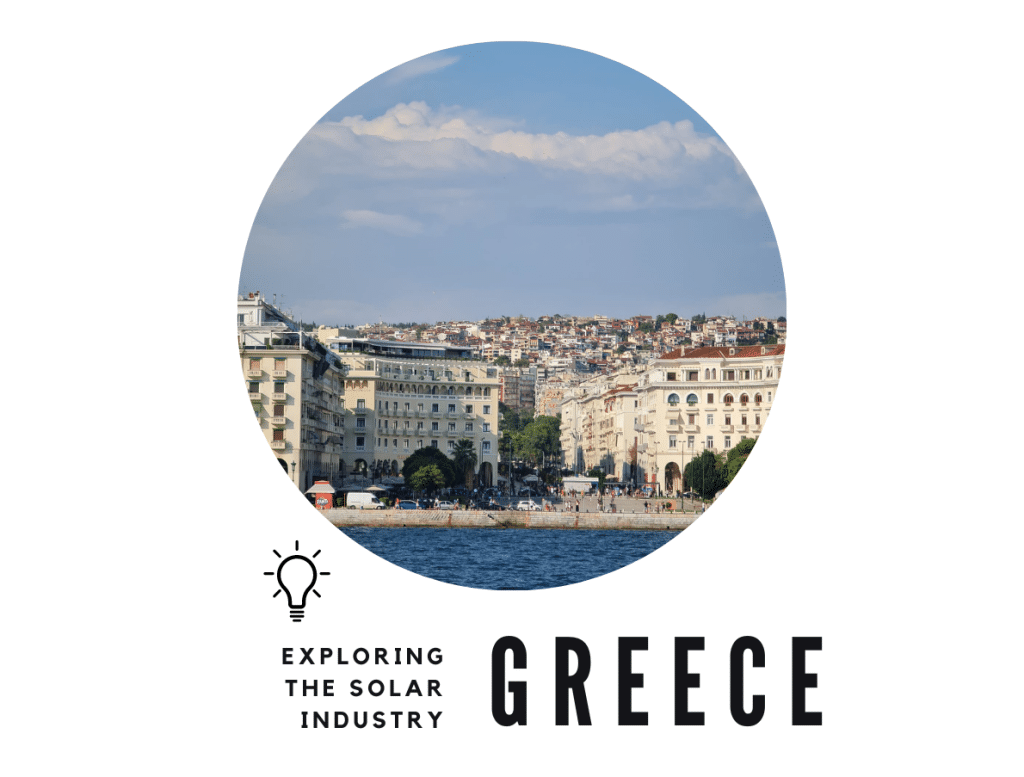- The Power of Grid Trading - February 13, 2023
- Energy Bills Continue to Soar in January 2023 - February 5, 2023
- Solar Energy and Energy Bills – A Brief History - December 12, 2022
Greece is revered by tourists for its immeasurable beauty. For crystal waters that bleed into glittering white towns, blurring the line between artistry and life. Visiting Greece is like walking into a love story, rich with history, beauty, and knowledge. From the distinguished literature of Homer, spellbinding stories of Zeus, Poseidon, and Aphrodite, and stunningly sculptured statues, to the mouth-watering souvlaki, tzatziki, and, oh, the bread…
I spend a week here after my time in Budapest. Hopping from island to island in search of a place to settle down, desperately trying to wrap my tongue around simple Greek pleasantries. I swim in the sea, impossibly blue, and indulge in the rich, creamy cheeses and crisp, sweet wines. Life is so close to a fairy tale, I find myself hoping this country, so illustrious in culture and beauty, is doing everything it can to meet the demands of Europe’s renewable goals.
Greece has set itself ambitious targets for the upcoming years. Targets that even Helios, the Greek god of the sun, would be proud of. If achieved, Greece will set a precedent for solar expansion. But, if the government falls short, the target will leave a sour taste in the mouths of climate activists. Luckily, we don’t have to look too hard to see that progress is being made.
Following a path paved by the European Union, Greece has outlined its own vision for 2030 – to double its capacity for renewable installations. And, in 2020, the country flew past its goal for renewable energy consumption – ending the year with an impressive 21.7% of electricity generated by renewables. A wonderful accomplishment, embodying the soul of Europe’s fight toward a carbon-neutral continent.

Thinking of the future
It’s easy to think of Greece as the front page of a travel brochure. But, behind the art and dazzling landscapes, households are struggling with the reality of rising energy costs. In 2018, well-renowned climate fighter, Greenpeace, put together a guide on how Greece could liberate itself from energy poverty. Five years later, this research has never been more important. The guide compiled a plan: how the government could bring solar to 340,000 households, creating small solar energy producers.
Allowing people access to clean energy and the ability to stand on their own two feet would mean the implementation of a ten-year program. Since 2018, it’s obvious Greece has made brilliant steps toward this vision.
Greenpeace described two ways their vision could be accomplished: solar panel installations for individual households, totally free of charge, and the birth of community PV parks, totally free for those who need them most. Their hope was for these ideas to be brought into fruition by energy suppliers hoping to rebrand themselves as environmental, and social warriors. And guess what? Their vision isn’t far off.
This year, the Greek Prime Minister cut the metaphorical ribbon of a shiny new solar park. The largest two-sided system in Europe. Costing €130 million, the park will power the homes of 75,000 citizens. Yet another example of large-scale solar projects and their widespread benefit. The twist? This project was backed by an unlikely investment – Hellenic Petroleum, a large oil company, transitioning into clean, green, energy.
The beauty of these two-sided panels is that they collect the sun’s light through both surfaces, generating a third more energy than one-sided panels and working by utilising the side of the panel not facing the sun. The panel collects the light reflected from the ground. Pretty clever, right?
Two steps forward, one step back?
But it’s not all sunshine and rainbows. Unfortunately for Greece, it appears to be two steps forward and one step back as their goal to phase out coal is put on hold. A reaction to the war no doubt, but one that will leave Greece embracing the expansion of lignite mining, increasing its output by 50%. The push-back date has been set for 2028, but the clock is ticking. It’s time for the government to put its money where its mouth is. It’s time for Greece to ramp up on the steady climb towards a solar takeover. There’s still a way until they reach the peak.
Watching Greenpeace’s plan rise from the dust is, hopefully, just the beginning for Greece.
